
This meeting allowed to follow the various topics covered by the Codex Alimentarius, but also to consolidate relations with the Codex Alimentarius secretariat, and in particular with Tom Heilland, secretary of the Codex Alimentarius Commission.
In parallel of the session, the President and the OIV Scientific coordinator have discussed with different national delegation members or non-members of the OIV regarding different issues.
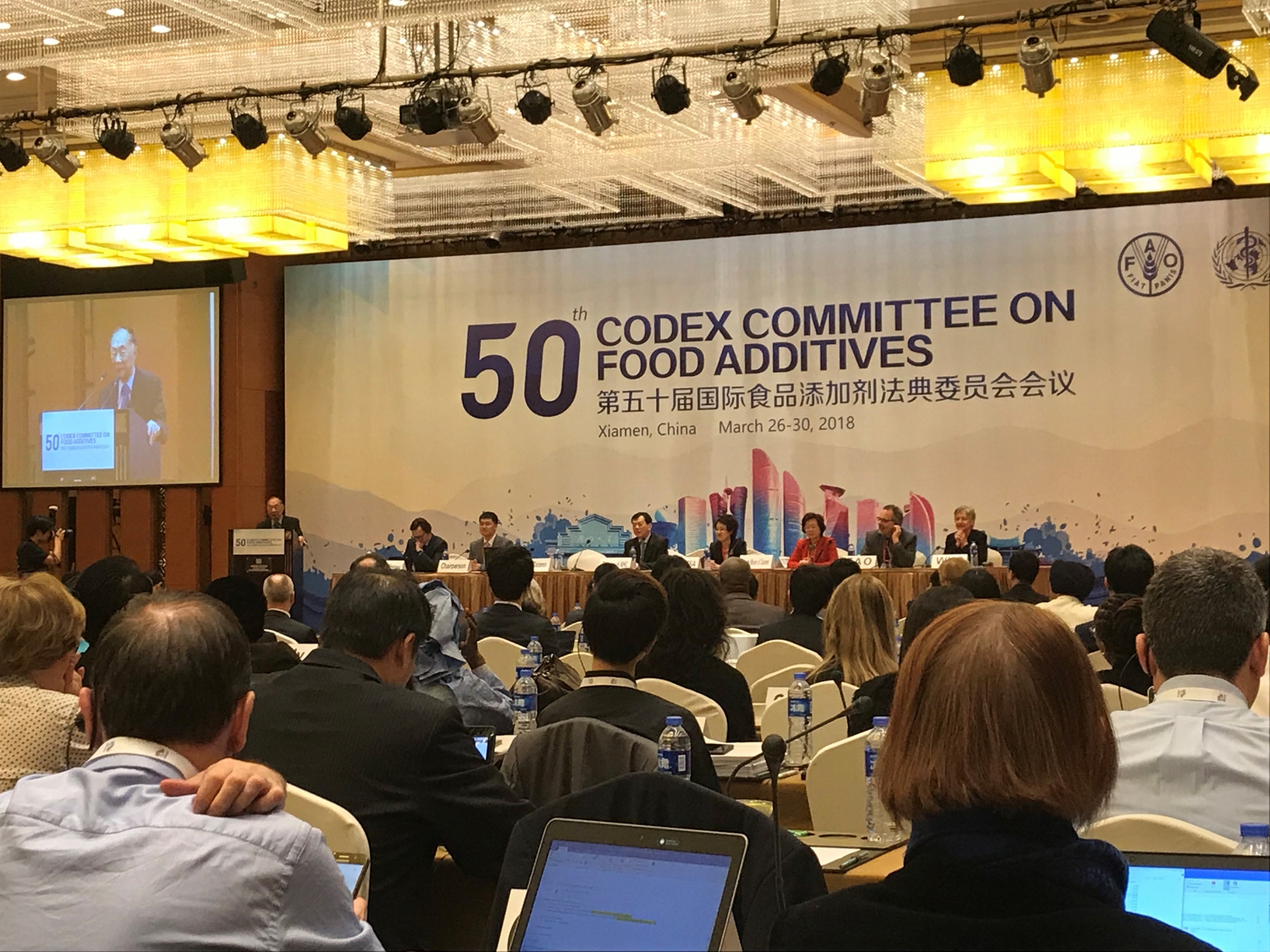
Among the technical issues, the CCFA has endorsed different decisions in particular regarding the specifications of microcrystalline cellulose. In addition the Joint Expert Committee of Food Additive (JECFA) has reported its works on tentative specifications on oenological tannins, metatartaric acid and yeats mannoproteins. In addition a safety assessment of potassium polyaspartate has been included in the work programme of the JECFA.
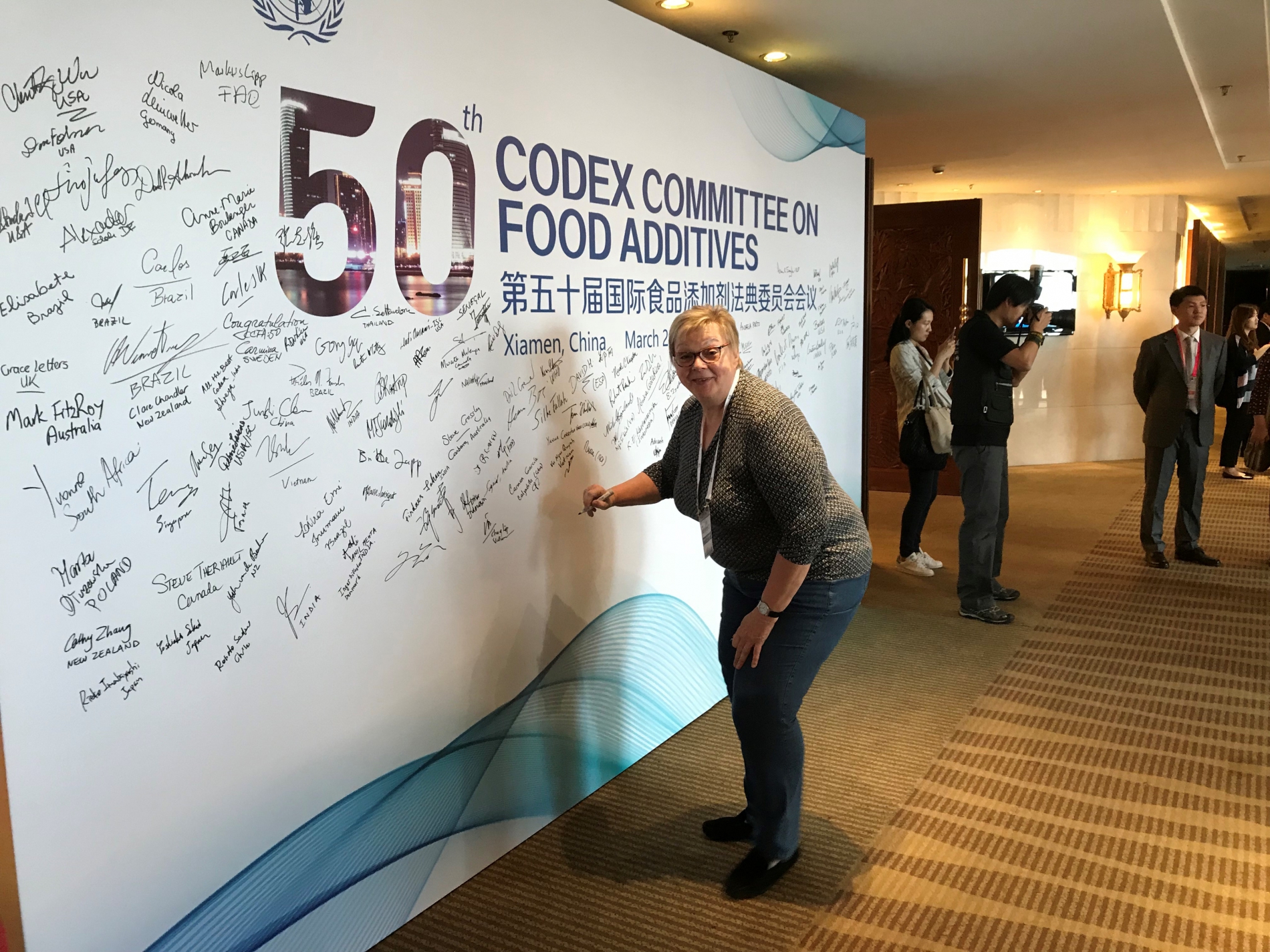
For more technical information, please consult the enclosed document
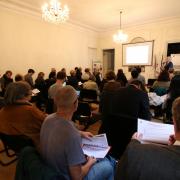
To attend this press conference, journalists are kindly asked to send an email with their name and their professional contact details to press@oiv.int.
Date: Tuesday 24 April 2018
Time: 11:00am
Location: International Organisation of Vine and Wine, (OIV), 18 Rue d'Aguesseau, Paris 75008 - Metro station Madeleine or Concorde [see map]

Tony Spawton dedicated his career to the marketing of wine as an expert for the Australian delegation to the OIV, teacher, consultant, writer and ambassador of a discipline he helped to create.
Originally from the country of Wales, he was an OIV delegate and expert for Australia between 1990 and 2008; in particular, he was the President of the “Market Analysis” Expert Group, and as such a member of the OIV Scientific and Technical Committee.
During long periods in Europe as an associate professor, Tony Spawton undertook research on risk reduction and changing consumption trends.
As Professor of Wine Marketing at the Roseworthy Agricultural College of the University of Adelaide, then at the School of Marketing of the University of South Australia, he was very active in different groups of the “Economy and Law” Commission and took part in the congresses in Cape Town, Paris, Lisbon, Bratislava, Budapest, Adelaide, Mainz and Buenos Aires.

His collaboration with numerous universities and schools led to him teaching in France, Spain, South Africa, Austria, Argentina, Uruguay, Chile, Hungary, Italy, the USA, Canada, New Zealand and Portugal.
The author of a great many publications and of a reference book on wine marketing, he was an active member of the International University Association of Wine.
The OIV has highlighted and recognised his career dedicated to a new aspect of the field and the importance of wine marketing, which undoubtedly contributed to the significant development of the knowledge of markets and thus to the progression of the international wine trade, awarding him the OIV Merit Award in 2011.

At the invitation of the President of the Saint-Yves conference (the oldest association of legal professionals in the Grand Duchy of Luxembourg), Mr William Lindsay Simpson, and of the Director of the Vine and Wine Institute and also Luxembourg OIV delegate, Mr Robert Ley, Jean-Marie Aurand gave a conference in the capital on 15 March dedicated to the regulatory role of the OIV and its impact on the global vitivinicultural sector.
This conference was open to a diverse audience: representatives of the vitivinicultural sector, ambassadors, members of European Union institutions working in the Grand Duchy, legal professionals... It also played host to the Minister for Agriculture, Viticulture and Consumer Protection, Mr Fernand Etgen.

During his introduction, the Minister gave a presentation on Luxembourg viticulture, emphasising the substantial efforts made by grape growers to improve the quality of wines, supported by public policies that have been put in place.
1250 ha of vines along the banks of the Moselle
The Grand Duchy has 1250 ha of vines along the banks of the Moselle, with an average annual production of 110 000 hL of wine – 90% of which are white wines, and 25% of these crémants.
Mr Fernand Etgen reminded those present that Luxembourg was one of the eight founding members of the OIV in 1924 and assured the Director General of his country’s full commitment to the Organisation.
Jean-Marie Aurand gave a panorama of the state of the global vitivinicultural sector, highlighting the major issues for the future and the role of the OIV within this context.

He also praised the high level of involvement of Luxembourg in the work of the OIV and the unfailing support that the Grand Duchy has given the Organisation.
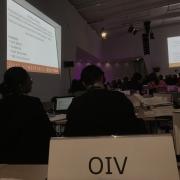
Among the items on the agenda for this session, the delegations from Member States present discussed the revision of the maximum limits on lead in food, including those for wine. Within this framework, the working group established in 2017 recommended reducing the maximum limit in the current Codex from 0.20 mg/kg to 0.05 mg/kg.
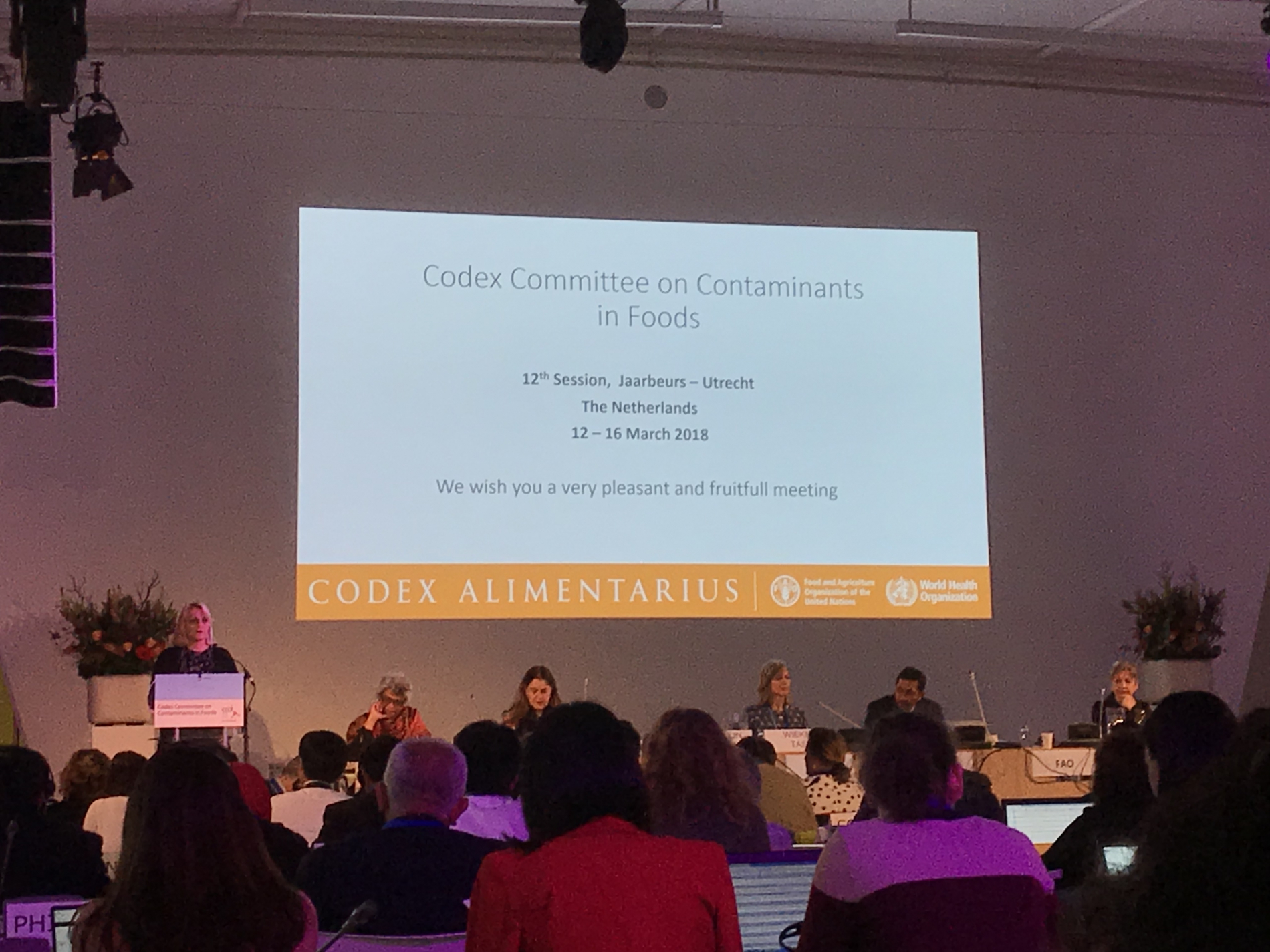
Several delegations remarked that the data considered by the electronic working group comprises data on beverages other than grape wines. For the setting of maximum limits, it would also be appropriate to take into account the specific characteristics of certain types of wines, such as fortified wines.
The OIV's recommendations
The representative of the OIV indicated that the International Organisation of Vine and Wine has adopted various recommendations on lead in wines over many years; in 1996 in particular, the OIV set a maximum limit at 0.20 mg/L, which was approved by the Codex in 2001. In 2006, the OIV established a new maximum limit of 0.15 mg/L, which is still in effect today.
The OIV drew the attention of the CCCF to the fact that an overly low limit, based only upon a statistical analysis of the samples and not specifically justified from a strictly health-related point of view, could have significant consequences on international trade.
On the basis of data from the working group, a maximum limit of 0.05 mg/kg would eliminate around 3% of wines (7.5 million hectolitres of wine), which would be excluded from the international wine trade, as well as a large proportion of fortified wines (24%).
In addition, Jean-Claude Ruf also indicated that the OIV is continuing to work on this issue and, in particular, has already initiated a discussion on the potential reduction of the current limit (0.15 mg/L). The Scientific Coordinator encouraged the CCCF to take into account the new work of the OIV on this issue, in order to avoid any duplication or inconsistency with respect to potential limits in the future.
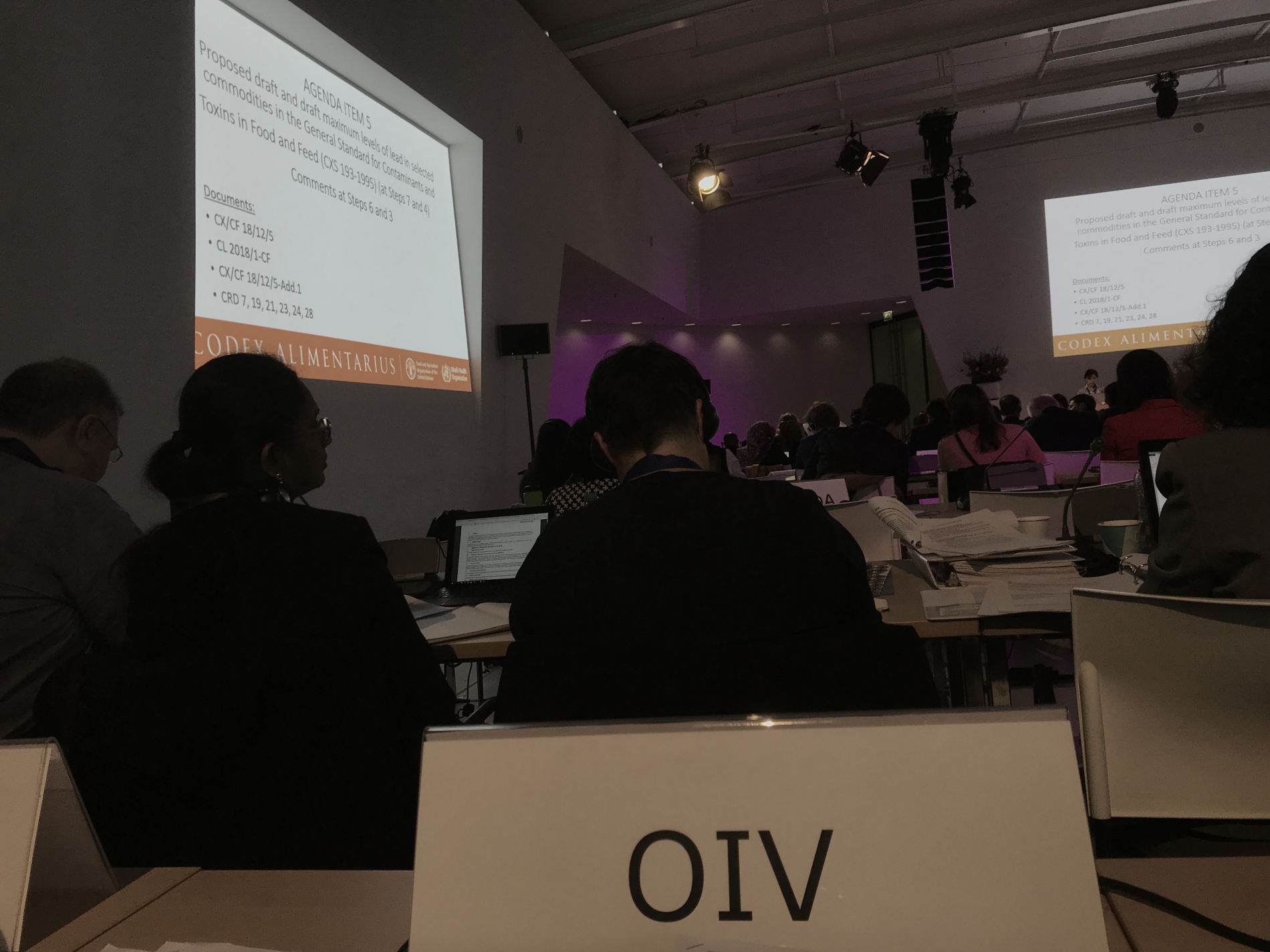
A topic for discussion next year
After discussion, and after taking into account all of the information – in particular that which was mentioned by the OIV – the CCCF, at the proposal of its President, decided to postpone discussion of the maximum limit on lead in wine for the coming year.
The working group presided by the United States was renewed with this objective of focusing on evaluating the specific characteristics of fortified wines.
Moreover, the Committee also agreed to launch new work on the revision of the Code of Practice for the Prevention and Reduction of Lead Contamination in Foods (CAC / RCP 56-2004), adopted by the Codex in 2004, in order to incorporate means of reducing the lead content in wines.
Furthermore, the CCCF agreed to present a reduction in the maximum limit on lead in grape juices from 0.05 mg/kg to 0.04 mg/kg to the Codex Committee for final adoption.